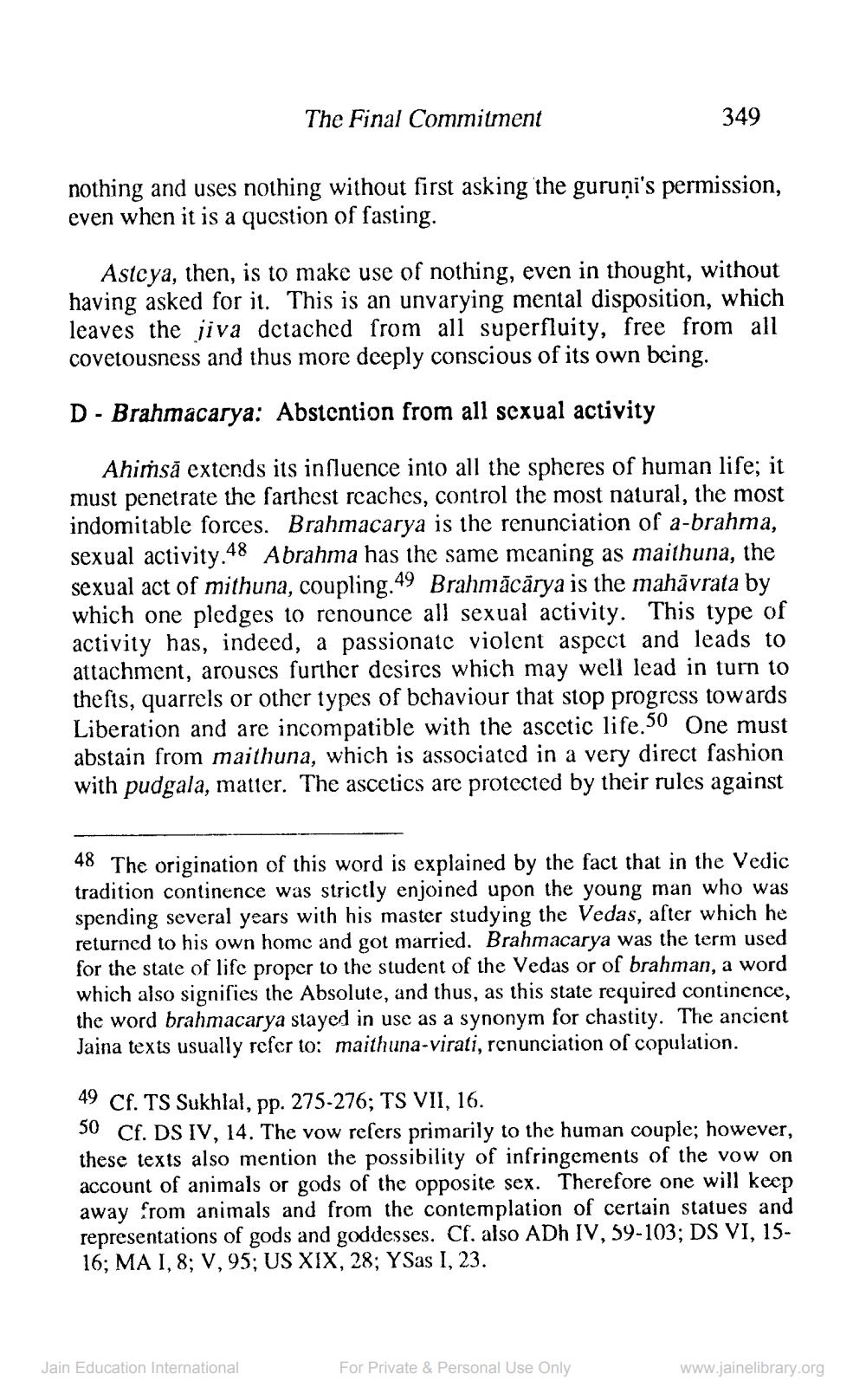________________
The Final Commitment
349
nothing and uses nothing without first asking the guruņi's permission, even when it is a question of fasting.
Asteya, then, is to make use of nothing, even in thought, without having asked for it. This is an unvarying mental disposition, which leaves the jiva detached from all superfluity, free from all covetousness and thus more deeply conscious of its own being.
D - Brahmacarya: Abstention from all sexual activity
Ahimsă extends its influence into all the spheres of human life; it must penetrate the farthest reaches, control the most natural, the most indomitable forces. Brahmacarya is the renunciation of a-brahma, sexual activity.48 Abrahma has the same meaning as maithuna, the sexual act of mithuna, coupling.49 Brahmācārya is the mahā vrata by which one pledges to renounce all sexual activity. This type of activity has, indeed, a passionate violent aspect and leads to attachment, arouscs further desires which may well lead in turn to thefis, quarrels or other types of behaviour that stop progress towards Liberation and are incompatible with the ascetic life.50 One must abstain from maithuna, which is associated in a very direct fashion with pudgala, matter. The ascetics are protected by their rules against
48 The origination of this word is explained by the fact that in the Vedic tradition continence was strictly enjoined upon the young man who was spending several years with his master studying the Vedas, after which he returned to his own home and got married. Brahmacarya was the term used for the state of life proper to the student of the Vedas or of brahman, a word which also signifies the Absolute, and thus, as this state required continence, the word brahmacarya stayed in use as a synonym for chastity. The ancient Jaina texts usually refer to: maithuna-virati, renunciation of copulation.
49 Cf. TS Sukhlal, pp. 275-276; TS VII, 16. 50 Cf. DS IV, 14. The vow refers primarily to the human couple; however, these texts also mention the possibility of infringements of the vow on account of animals or gods of the opposite sex. Therefore one will keep away from animals and from the contemplation of certain statues and representations of gods and goddesses. Cf. also AD IV, 59-103; DS VI, 1516; MA I, 8; V, 95; US XIX, 28; YSas 1, 23.
Jain Education International
For Private & Personal Use Only
www.jainelibrary.org




